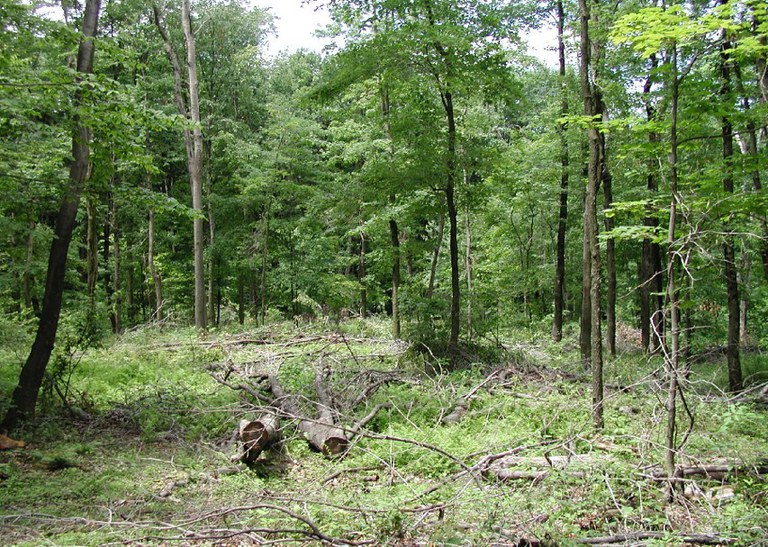Posted: February 21, 2019
Despite the importance of forests in PA, many forests have become degraded due to past timber harvesting practices that have mainly removed the largest and most valuable trees from the forest and left behind the smaller, lower-quality ones.
Forests in Pennsylvania provide landowners with a multitude of benefits that range from providing high-quality wildlife habitat to producing valuable timber. Despite the importance of forests in PA, many forests have become degraded due to past timber harvesting practices that have mainly removed the largest and most valuable trees from the forest and left behind the smaller, lower-quality ones. This practice is often referred to as high-grading, diameter-limit cutting, logger's choice cutting, or select cutting. Over time, multiple high-graded timber harvests reduce the long-term capacity of a forest to produce valuable timber or meet the goals of the people who own them.
An important step in improving the quality of your forest is being able to identify how it has been managed in the past. Caring well for previously high-graded forests is anticipated to require specific and targeted management to return it to a productive state. Although high-grading is known to be a common timber harvesting technique used on private forests in PA, there is limited knowledge about what these high-graded forests look like years down the road. If we can understand the characteristics of high-graded forests, we can figure out how to advance the rehabilitation of these forests.
As part of my Master's project, I am studying what previously high-graded forests look like. I am looking to partner with forest landowners who have had a timber harvest that was classified as a high-grade, diameter-limit cut, logger's choice cut, or select cut, close to 10-15 years ago - perhaps before you acquired your property or since it's been in your care. If your property has had one of these timber harvests done close to 10-15 years ago, and would be willing to have it included in the study, or are interested in learning more about the study, please contact me.
James C. Finley Center for Private Forests
Address
416 Forest Resources BuildingUniversity Park, PA 16802
- Email PrivateForests@psu.edu
- Office 814-863-0401
- Fax 814-865-6275
James C. Finley Center for Private Forests
Address
416 Forest Resources BuildingUniversity Park, PA 16802
- Email PrivateForests@psu.edu
- Office 814-863-0401
- Fax 814-865-6275


